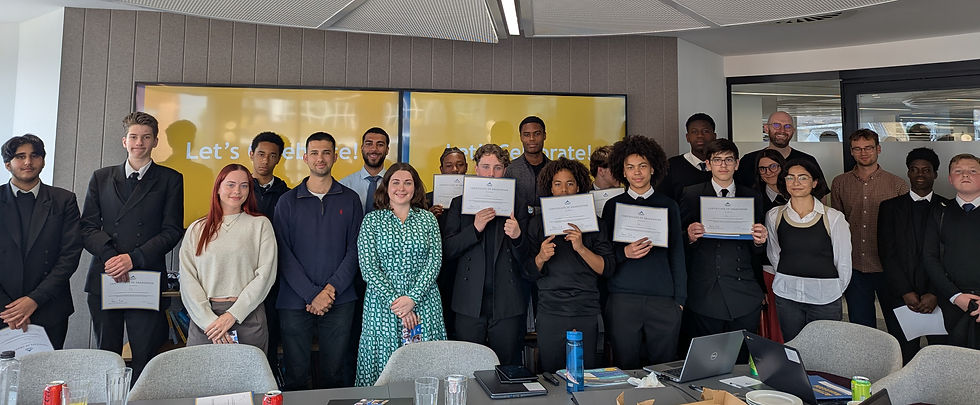‘Lottery of opportunity’ for Disadvantaged Children in Post-16 Education
- May 18, 2021
- 3 min read
Updated: Oct 5, 2025
As 16 year olds across England and Wales prepare for their assessment-based GCSE results, education charity Future Frontiers says there’s a ‘lottery of opportunity’ for disadvantaged children who don’t achieve 5 grades C and above.
Over half of all London 16 year olds leave school after GCSEs. In the rest of England, the proportion is even higher, with 70% switching to another form of higher education.
The government introduced the Skills and Post-16 Education Bill on Tuesday May 18th after promising a rocket-fuelled skills "revolution" for England, with loans for adults wanting to retrain and more powers to deal with failing colleges.
Why does this matter? Because if you’re not in the minority staying at school and taking A levels - the provision of post 16 education is a patchwork of the good, the bad and the indifferent, and navigating this landscape is a minefield for the students involved.
‘Students who don’t pass the entrance criteria to stay on at Sixth Forms face a complex and bewildering array of post 16 education options. Even specialists in the field describe it as confusing and overwhelming’, says Founder and CEO of Future Frontiers, Dominic Baker.
‘Lots of students, particularly those from disadvantaged backgrounds, have limited awareness of their career options, don’t have the ‘social capital’ and family connections to support them with this process. Students often haven’t really thought deeply about what they’re going to do post-16. Many of them expect to stay at school and are shocked when they’re not offered a place there.
‘These young people are less likely to have parents or carers who understand the myriad of options available, and many young people themselves don’t have the knowledge or confidence to advocate for themselves. This can lead to a mad scramble on results day, with a very short space of time between them finding out their grades, and enrolling on courses.
‘As a result, many students are funnelled into unsuitable courses - often with limited teaching time - that result in poor qualifications, perpetuating the cycle of low paid work and lack of opportunity.
‘This is why we’ve introduced our new Key Stage 4 Career Coaching programme - specifically targeting children who are at risk of not achieving the grades to stay on at Sixth Form.
‘We work with them to create a plan A, which requires them to achieve 5 GCSEs at grade C and above, and could see them staying on at school, and crucially, a Plan B, in which they research the best options for them outside of the school environment.
‘Through partnerships with local businesses, we match volunteer coaches to schools and each pupil selected for the programme is given 6 hours of 1 to 1 coaching, plus a chance to speak to someone working in one of the sectors they’re interested in. These employer interactions are crucial, and have been proven to impact directly a young person’s likelihood of securing employment as an adult.
‘Each student is also guaranteed an hour long 1-1 session with a level 6 careers advisor. These professionals provide absolutely critical, expert, local and personalised knowledge to help young people select high quality courses they are likely to thrive in.
‘We also support students through the application and enrolment processes. If they’ve applied to courses in Year 11, and they get the grades, their place is guaranteed. But if they haven’t applied in advance, they are at the back of the queue for courses and just get whatever’s left. So we prioritise making sure they have good applications in the bag so they have genuine choices come results day.
For the first time, students on the Future Frontiers new Key Stage 4 programme are promised support on results day to make sure they can handle last-minute changes and get the best opportunity that’s right for them.



